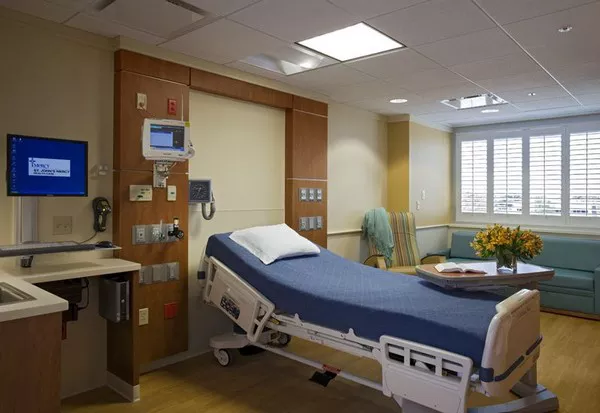Definition of Depression
Depression is a complex and debilitating mental health disorder that affects millions of people worldwide. It goes beyond temporary feelings of sadness or low mood and significantly impacts a person’s thoughts, emotions, and physical well-being. Unlike normal sadness, which is usually triggered by specific events and tends to resolve on its own, depression persists over time and can interfere with daily functioning, relationships, and overall quality of life.
Symptoms of Depression
Depression manifests through a variety of emotional, physical, and cognitive symptoms, which can vary in severity and duration. Emotional symptoms may include persistent feelings of sadness, hopelessness, or emptiness, loss of interest or pleasure in previously enjoyed activities, irritability, and frequent crying spells. Physical symptoms often include changes in appetite or weight, sleep disturbances (insomnia or hypersomnia), fatigue, low energy levels, and unexplained aches or pains. Cognitive symptoms may involve difficulty concentrating, making decisions, or remembering details, as well as negative thoughts, self-criticism, and thoughts of death or suicide.
Causes of Depression
The exact causes of depression are multifaceted and not fully understood, but they are thought to involve a combination of biological, genetic, psychological, and environmental factors. Biological factors may include imbalances in neurotransmitters such as serotonin, norepinephrine, and dopamine, which regulate mood and emotions. Genetic predisposition can also play a role, as individuals with a family history of depression are at higher risk of developing the disorder. Environmental factors such as chronic stress, trauma, abuse, loss, or significant life changes can trigger or exacerbate depression in susceptible individuals.
Types of Depression
Depression encompasses various types, each with its own unique characteristics and diagnostic criteria. Major depressive disorder (MDD), also known as clinical depression, is the most common form and involves persistent feelings of sadness, hopelessness, and a loss of interest or pleasure in activities. Persistent depressive disorder (PDD), or dysthymia, is a chronic form of depression lasting for two years or more, with milder but long-lasting symptoms. Seasonal affective disorder (SAD) is a subtype of depression that occurs seasonally, typically during the winter months when there is less natural sunlight. Other types include bipolar disorder, postpartum depression, and psychotic depression.
Treatment Options
Fortunately, depression is a treatable condition, and various approaches can help individuals manage their symptoms and improve their quality of life. Treatment may involve a combination of psychotherapy, medication, and lifestyle changes tailored to each individual’s needs. Cognitive-behavioral therapy (CBT), interpersonal therapy (IPT), and other forms of talk therapy can help individuals identify and challenge negative thought patterns, develop coping skills, and improve interpersonal relationships. Antidepressant medications, such as selective serotonin reuptake inhibitors (SSRIs) or serotonin-norepinephrine reuptake inhibitors (SNRIs), may be prescribed to rebalance neurotransmitter levels and alleviate symptoms. Lifestyle changes such as regular exercise, healthy eating, adequate sleep, stress management techniques, and social support can also play a crucial role in recovery.
Self-Help Strategies
In addition to professional treatment, there are several self-help strategies individuals can incorporate into their daily lives to manage depression symptoms and promote overall well-being. Regular physical activity, such as brisk walking, jogging, yoga, or swimming, can help reduce symptoms of depression by increasing endorphin levels and improving mood. Practicing mindfulness and relaxation techniques, such as deep breathing exercises, meditation, or progressive muscle relaxation, can help reduce stress and promote emotional balance. Building and maintaining a strong support network of friends, family, or support groups can provide valuable emotional support and encouragement during difficult times. Engaging in hobbies, creative activities, or volunteering can also provide a sense of purpose, fulfillment, and enjoyment.
Resources for Help
Seeking help for depression is a crucial step towards recovery, and there are numerous resources available to support individuals in their journey to mental health. National and local mental health organizations, such as the National Alliance on Mental Illness (NAMI), the Depression and Bipolar Support Alliance (DBSA), or the Anxiety and Depression Association of America (ADAA), offer valuable information, resources, and support groups for individuals living with depression. Hotlines and crisis helplines provide immediate assistance and support to individuals in crisis or contemplating suicide, such as the National Suicide Prevention Lifeline (1-800-273-TALK) or Crisis Text Line (text “HELLO” to 741741). Professional help options include psychiatrists, psychologists, licensed therapists, or counselors who specialize in treating depression and can provide individualized treatment plans and support.
Conclusion
In conclusion, depression is a complex and challenging mental health disorder that requires understanding, compassion, and appropriate treatment. By recognizing the symptoms, understanding the underlying causes, and seeking help from qualified professionals and supportive resources, individuals can embark on a path towards healing, recovery, and a brighter future. Remember, you are not alone, and help is available.
FAQs
What is the definition of become depressed?
Becoming depressed refers to experiencing a persistent feeling of sadness, hopelessness, and a loss of interest or pleasure in activities once enjoyed. It often involves a range of physical and emotional symptoms that impact daily functioning.
What is depression and is it real?
Depression is a mental health disorder characterized by persistent feelings of sadness, emptiness, and a loss of interest in activities. It’s absolutely real; it’s not just feeling sad or down occasionally. It’s a medical condition that affects mood, thoughts, and physical health.
What are the causes of depression?
Depression can arise from a combination of genetic, biological, environmental, and psychological factors. Traumatic events, chronic stress, imbalances in brain chemistry, and certain medical conditions can all contribute to the development of depression. Additionally, family history and personality traits may also play a role.
Related topics:
- Warts: Identifying, Treating & Preventing
- How Many Headaches Are Caused By Dehydration?
- The Impact of Right-Side Stroke: A Complete Overview


